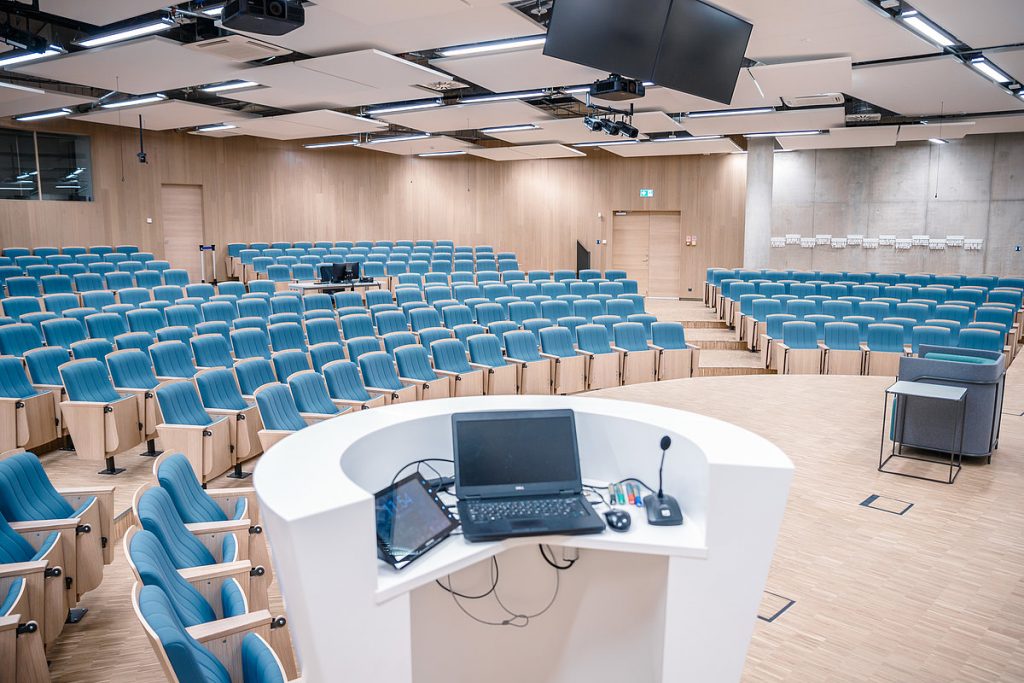Press release 2020 (Latvia)

MyHUB researchers remind not to forget about pupils and students with special needs and inclusive education even in a crisis caused by Covid-19
A state of emergency has been declared in Latvia and throughout the
European Union – schools and universities work remotely. This situation poses
innumerable challenges for teachers and university lecturers – they need to
learn new skills at a very fast reorient their daily work from offline to
online communication. This is not an easy task for anyone – neither teachers nor
pupils and students.
The research team of the ERASMUS + project “My HUB
– an online repository of inclusive good practices, resources, methodologies
for educators in formal and non-formal education” remind – pupils and students
with special needs and learning difficulties not to be forgotten in this tense
situation. It is necessary to continue efforts to implement inclusive education
in Latvian schools and universities also in the conditions of the crisis caused
by Covid-19.
“In a crisis situation, it is especially important to remember and take into account that students who have difficulty learning the content of learning in the traditional form may face additional difficulties in distance learning. For example, confusion about how to teach in the future, difficulty understanding the written instructions given by the teacher, completing the task independently without help and support, organizing your own learning, learning environment, learning time, concentrating on one task, completing the task on time, giving feedback on what has been done” said the leading researcher, assoc. prof. of University of Latvia Dita Nimante. “This would be a good time to involve school support staff in the development of remote assignments, advising on the best way to communicate with children with special needs, what tasks and how many tasks to assign. In this case, the principle will not work – more is better. It is now particularly important to clearly and unambiguously define the minimum requirements (results to be achieved) that a student must meet in order for the student to learn the basics and obtain at least a sufficient grade. It is important to think about how feedback from these students will be provided and what counseling opportunities they will have. It may be possible in some cases to use the services of an assistant, and many children with special needs are assisted by their family members. For their part, schools should rethink how the assistant’s working hours will be fixed so that he or she can still be paid for his or her work” emphasizes D. Nimante.
The project manager prof. Linda Daniela, whose research interests are closely related to technology-enriched learning, mentions that “Latvia is currently looking for solutions to provide learning in the digital environment, to support those students who do not have access to the necessary technologies at home, but using technology and online learning solutions. also think about students who have needed special support in the learning process, which may be necessary due to learning disabilities or other special needs. What technologies, what teaching materials should be used so that learning in the digital environment does not exclude these pupils and students from the learning process? There are quite a number of technological solutions that can be used to provide distance learning, but often they are only for students who can read text (if it is digital text), students who do not have specific vision problems, and so on. Despite the emergency, which requires all of us to change our teaching and learning habits rapidly, let us not forget those we have already learned to support in our daily learning and think about how this support can also be provided in the digital learning environment. It’s not easy, but if we still want to provide an inclusive learning environment for everyone, then we also need to think about every pupil and student on the other side of the screen. ” The project “My HUB – an online repository of inclusive good practices, resources, methodologies for education staff in formal and non-formal education” (604454-EPP-1-2018-1-LV EPPKA3-IPI-SOC-IN) was launched in 2019. Researchers of University of Latvia together with partners from Belgium, Bulgaria, Austria and Cyprus, are developing a digital website that collects materials and examples of good practice on inclusive education issues. The project will end on January 30, 2022.
